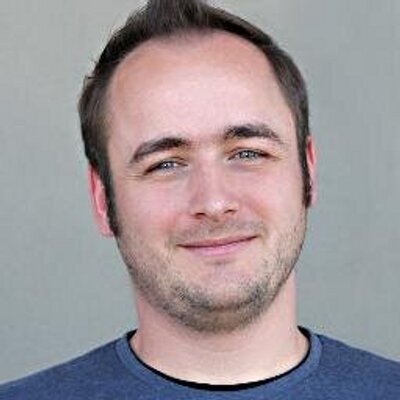South Africa
See the following -
'Open.Michigan' Translation Project: Case Study On Health Education For Uganda
Back in January, we launched our translation pilot for Open.Michigan, focusing on two video series for health education. We are thrilled to report that the translation activities are still going strong—57 volunteers to date, 53 videos that include 128 completed translations covering 11 languages, and expansion into our family medicine video series. We are amazed at the skill and dedication of our volunteer translators. Read More »
- Login to post comments
10 African Startups That Rocked 2014
2014 has been another amazing year for startups in Africa. More and more entrepreneurs turned their attention to building businesses that can solve the continent's problems and provide services it has long awaited...
- Login to post comments
2015 Was a Good Year for Creating the World's 'Missing Maps' with OpenStreetMap
 The Missing Maps project, which launched in 2014, aims to literally and figuratively put more than 20-million at-risk people on the map using OpenStreetMap (OSM) as a platform. We need to fill in "missing maps" before the next disaster strikes, ensuring the maps have detail sufficient for emergency responders to hit the ground running. OpenStreetMap is an open and free source of geographic data. Anyone with a username can add, edit, or update data, so the Missing Maps project is community driven and focuses on local knowledge. Remote volunteers around the world use satellite imagery to trace features, such as roads and buildings. Community members and volunteers in the area then use the base map to add local data to these shapes, including street names, addresses, building types, and points of interest. As we look back at 2015, here are a few success stories from the Missing Maps project...
The Missing Maps project, which launched in 2014, aims to literally and figuratively put more than 20-million at-risk people on the map using OpenStreetMap (OSM) as a platform. We need to fill in "missing maps" before the next disaster strikes, ensuring the maps have detail sufficient for emergency responders to hit the ground running. OpenStreetMap is an open and free source of geographic data. Anyone with a username can add, edit, or update data, so the Missing Maps project is community driven and focuses on local knowledge. Remote volunteers around the world use satellite imagery to trace features, such as roads and buildings. Community members and volunteers in the area then use the base map to add local data to these shapes, including street names, addresses, building types, and points of interest. As we look back at 2015, here are a few success stories from the Missing Maps project...
- Login to post comments
30 Brilliant African Tech Startups
The secret is out. Wired likens the opportunities in Africa to those of the pre-dotcom boom in 1995. Says the magazine: “If you want to become extremely wealthy over the next five years, and you have a basic grasp of technology, here’s a no-brainer: move to Africa.” Read More »
- Login to post comments
Africa Innovations: 15 Ideas Helping To Transform A Continent
A mobile phone database for dairy farmers and a strain of sweet potato that can help fight child blindness. These are just two of the imaginative new ideas that are tackling Africa's old problems Read More »
- Login to post comments
Africa's Mineral Wealth Hardly Denting Poverty Levels, Says World Bank
Report finds discovery of oil and mineral resources doing little to improve prospects for poor people, whose lot may even worsen Read More »
- Login to post comments
ASAP Awards – Interview With Nitika Pant Tai
Communities with limited wealth suffer of diseases in a way that many of us may never come to be confronted with. Poverty befriends disease, and many diseases befriend shame. Read More »
- Login to post comments
Campaign To Reinforce Southern Voice In Research
An initiative has been launched to break the dominance of Northern agendas and practices in development debates and policy, and to increase the impact of Southern research on global development discussions. Read More »
- Login to post comments
Can These Six Killer Apps Fix South Africa's Inequality?
Naill Ferguson reckons the developing world can use these apps to improve economic development...The apps are six broad ideas that emerged in Western culture that promote innovation, stability and wealth. The most important development, according to Ferguson is that these apps are open source and therefore free to download. It is also clear that many countries in the East have downloaded these apps...
- Login to post comments
Can We Engage Private Pharmacies To Help Control Drug-Resistant Tuberculosis?
Antibiotic resistance and infectious diseases have long been high on my list of things to worry about, with multi-drug-resistant tuberculosis vying for top honors. In 2015, 10.4 million people became ill with tuberculosis, and 1.8 million died, making TB one of the top causes of death globally. Six countries account for 60% of the cases: China, India, Indonesia, Nigeria, Pakistan and South Africa. As I noted in a previous post, India is critically important to control of drug resistance as well as tuberculosis, as it has the highest TB burden, with 2.2 million infections annually, as well as the largest antibiotic consumption...
- Login to post comments
Dedicated Engineering Team in South Africa Deploys Open Source Tools, Save Lives
 In 2006, a groundbreaking TED talk used statistics to reveal surprising insights about the developing world, including how many people in South Africa have HIV despite free and available anti-retroviral drugs. Gustav Praekelt, founder of Praekelt.org, heard this TED talk and began tenaciously calling a local hospital to convince them to start an SMS program that would promote anti-retrovirals. The program that resulted from those calls became txtAlert—a successful and widely recognized mobile health program that dramatically improves medical appointment adherence and creates a free channel for patients to communicate with the hospital...
In 2006, a groundbreaking TED talk used statistics to reveal surprising insights about the developing world, including how many people in South Africa have HIV despite free and available anti-retroviral drugs. Gustav Praekelt, founder of Praekelt.org, heard this TED talk and began tenaciously calling a local hospital to convince them to start an SMS program that would promote anti-retrovirals. The program that resulted from those calls became txtAlert—a successful and widely recognized mobile health program that dramatically improves medical appointment adherence and creates a free channel for patients to communicate with the hospital...
- Login to post comments
Developing Nations Improving Health Communication Through the Use of DHIS2 (Part 1)
 DHIS2 implementations are spreading steadily among national health services in developing countries as well as among international non-governmental organizations (NGOs) working to improving health in the developing world through the use of health information technology. As an open source solution, DHIS2 offers developing countries the advantage of adopting a cost-effective and flexible solution for aggregate statistical data collection, validation, analysis, management, and presentation as well as for data sharing between healthcare professionals and facilities. Organizations and individuals who work with humanitarian software solutions will need to know what DHIS2 is, how it works, and how it might be implemented by national health services and other health-related projects across the globe...
DHIS2 implementations are spreading steadily among national health services in developing countries as well as among international non-governmental organizations (NGOs) working to improving health in the developing world through the use of health information technology. As an open source solution, DHIS2 offers developing countries the advantage of adopting a cost-effective and flexible solution for aggregate statistical data collection, validation, analysis, management, and presentation as well as for data sharing between healthcare professionals and facilities. Organizations and individuals who work with humanitarian software solutions will need to know what DHIS2 is, how it works, and how it might be implemented by national health services and other health-related projects across the globe...
- Login to post comments
DHIS2 - Transforming Health IT Standards in the Developing World (Part 2)
 Rwanda's 2012 implementation of DHIS2 is one of at least 16 completed national rollouts of this free and open source health data management. A total of 54 countries are deploying DHIS2 on a national scale, 30 of which are in the pilot stage or early phase in their rollouts. Since DHIS2's release in 2006, NGOs and national governments in 60 countries have deployed DHIS2 for health-related projects, including patient health monitoring, improving disease surveillance and pinpointing outbreaks, and speeding up health data access.
Rwanda's 2012 implementation of DHIS2 is one of at least 16 completed national rollouts of this free and open source health data management. A total of 54 countries are deploying DHIS2 on a national scale, 30 of which are in the pilot stage or early phase in their rollouts. Since DHIS2's release in 2006, NGOs and national governments in 60 countries have deployed DHIS2 for health-related projects, including patient health monitoring, improving disease surveillance and pinpointing outbreaks, and speeding up health data access.
- Login to post comments
Digitizing Maps Of Malaria Hotspots To Save Lives
Mapping collaboration between Europe and Africa has led to the creation of a digitized malaria mapping database that for the first time brings together all available malaria data, helping tackle a disease that kills more than 660,000 people every year.
- Login to post comments
DIY Lab Technique to Revolutionise Training for Neuroscientists
 A team of international researchers have come up with an inexpensive way to self-manufacture lab equipment, which could revolutionise the way neuroscientists across the world are trained. In a study published in the open access journal PLOS Biology, Dr Tom Baden from Sussex Neuroscience and André Maia Chagas, from the University of Tübingen, have devised a new imaging and microscope system called “FlyPi”. The equipment needed for modern neuroscience experiments can cost tens or even hundreds of thousands of pounds, which often means only institutions in rich countries can undertake top-level research and scientific training...
A team of international researchers have come up with an inexpensive way to self-manufacture lab equipment, which could revolutionise the way neuroscientists across the world are trained. In a study published in the open access journal PLOS Biology, Dr Tom Baden from Sussex Neuroscience and André Maia Chagas, from the University of Tübingen, have devised a new imaging and microscope system called “FlyPi”. The equipment needed for modern neuroscience experiments can cost tens or even hundreds of thousands of pounds, which often means only institutions in rich countries can undertake top-level research and scientific training...
- Login to post comments